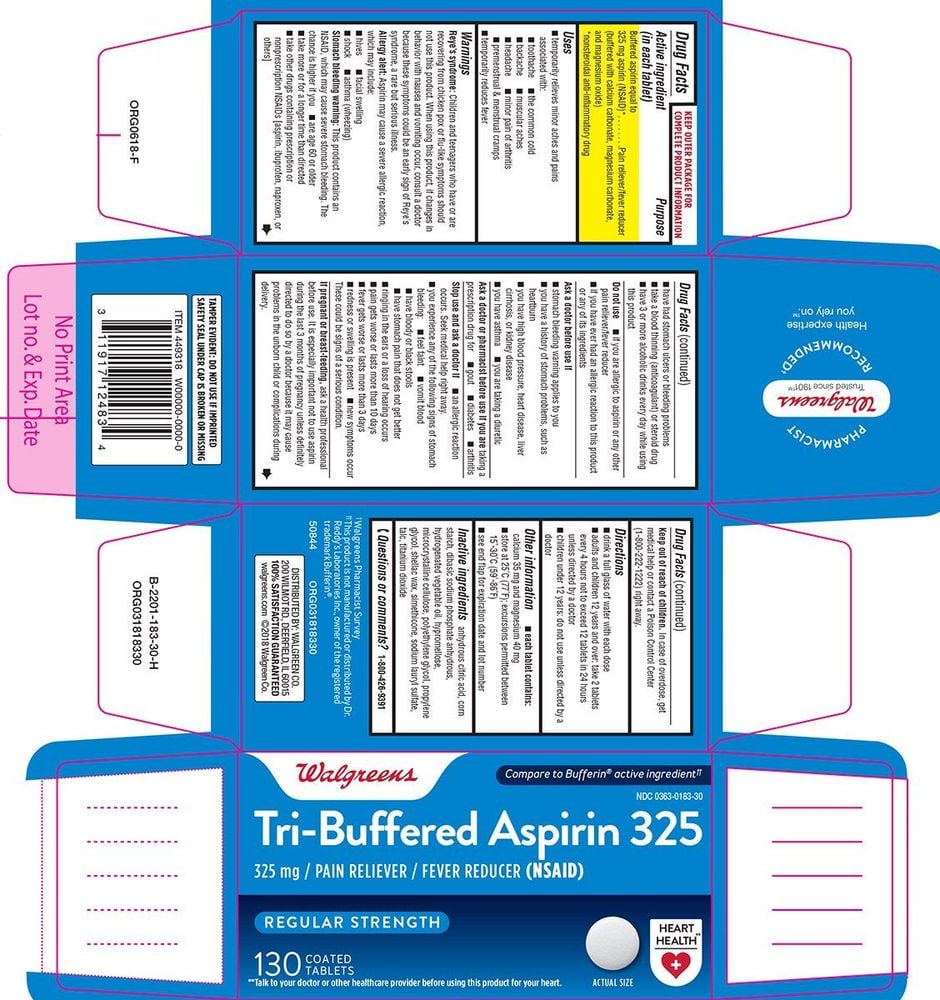This is an automatically translated article.
Proper use will help increase the absorption of Aspirin, antacids and Buffered Aspirin to promote maximum effects, ensuring safety for users.
1. What is Buffered Aspirin?
Buffered Aspirin is made in tablet form, with ingredients containing Aspirin and antacids. Aspirin, also known as salicylic acid, is a non-steroidal anti-inflammatory drug (NSAID). Aspirin is used to reduce fever and relieve mild to moderate pain from muscle aches, toothaches, the common cold, and headaches. Aspirin can also be used to reduce pain and swelling caused by arthritis. Antacids such as calcium carbonate, aluminum hydroxide, or magnesium oxide help relieve heartburn and stomach upset that aspirin can cause.
2. How to use Buffered Aspirin?
Proper use will help increase the absorption of Aspirin, antacids and Buffered Aspirin to promote maximum effects, ensuring safety for users. Therefore, patients should pay attention to the following notes when using Buffered Aspirin:
Buffered Aspirin is used orally. Buffered Aspirin should be taken when full, right with a meal with a full glass of water corresponding to about 240ml of water to avoid side effects on the stomach of the drug. Do not lie down for at least 10 minutes after taking Buffered Aspirin. Dosage is based on the individual patient's medical condition, age, and response to treatment.

Thuốc Buffered Aspirin được bào chế ở dạng viên, với thành phần có chứa Aspirin và thuốc kháng axit
3. What are the side effects of Buffered Aspirin?
Besides the therapeutic effect, using Buffered Aspirin can lead to unwanted effects. Common side effects that can occur when taking Buffered Aspirin include: Abdominal discomfort and heartburn.
Tell your doctor right away if while taking Buffered Aspirin you have any of the following serious side effects:
Easy bruising, bleeding; Difficulty hearing, tinnitus; Signs of kidney problems such as a change in the amount of urine Nausea, persistent or severe vomiting; Unexplained fatigue; Dizzy ; Dark urine, yellow eyes, jaundice; Rarely, Buffered Aspirin can cause serious bleeding in the stomach - intestines or other areas of the body, which can be recognized by signs such as black, tarry stools; stomach pain , persistent or severe stomach pain; vomit that looks like coffee grounds; difficulty speaking, weakness on one side of the body; sudden vision changes or severe headache; Children and adolescents younger than 18 years of age who have had chickenpox, the flu, or have recently been vaccinated with aspirin are at increased risk of Reye's syndrome, a rare but serious illness with early symptoms such as changes in behavior. vi accompanied by nausea and vomiting; Severe allergic reactions to Buffered Aspirin are very rare with symptoms including: Rash; itching and/or swelling of the face, tongue, or throat; severe dizziness; shortness of breath; Buffered Aspirin may affect the results of certain tests, such as liver and kidney function tests, complete blood count tests, salicylate level tests, and urine sugar tests. So let the lab staff and your doctor know you're taking Buffered Aspirin when you visit your doctor. This is not a complete list of possible side effects when taking Buffered Aspirin. While taking Buffered Aspirin, if you notice other unwanted effects not listed above or if any of these side effects are severe, persist or get worse, don't be subjective, stop. Buffered Aspirin and tell your doctor or pharmacist right away for advice on adjusting the medication more appropriate.
Before using Buffered Aspirin, tell your doctor or pharmacist a history of allergy to other salicylates such as choline salicylate or to other NSAIDs such as ibuprofen, naproxen; a history of blood clotting problems such as hemophilia, vitamin K deficiency, low platelet count; kidney disease, liver disease, diabetes; stomach problems such as stomach ulcers, heartburn, heartburn, stomach pain; asthma ; nasal polyps; gout; some enzyme deficiency such as pyruvate kinase or G6PD deficiency. There, your doctor or pharmacist will advise you to choose and adjust your medication.
4. What drug interactions can occur when taking Buffered Aspirin?
Drug interactions can change the action, effects, and effectiveness or even increase your risk of serious side effects. So, before using Buffered Aspirin, tell your doctor about all other medicines and products you are using.
Products that interact with Buffered Aspirin that increase the risk of side effects include: Acetazolamide, anticoagulants such as warfarin, heparin; corticosteroids such as prednisone; dichlorphenamide, ketorolac, methotrexate, mifepristone, valproic acid, herbal medicine such as ginkgo biloba.

Thuốc Buffered Aspirin được sử dụng bằng đường uống
5. What are some other notes when using Buffered Aspirin?
If abused, Buffered Aspirin can lead to overdose and serious symptoms such as sore throat, stomach pain, confusion, mental-mood changes, fainting, weakness, ringing in the ears, fever, rapid breathing, change in the amount of urine, convulsions, loss of consciousness, fainting, or difficulty breathing.
If you have missed a dose of Buffered Aspirin, take it as soon as you remember if it is not time for your next dose. Conversely, if it is time for your next dose of Buffered Aspirin, skip the missed dose and take your next dose as usual.
In order for Buffered Aspirin to remain therapeutically effective and safe, you need to store the medicine under the temperature conditions as directed. Do not store medicine in the bathroom and make sure it is out of reach of children and pets.
To ensure safety and avoid side effects of Buffered Aspirin, patients should read the instructions carefully before using or follow the instructions of the doctor or pharmacist. In case the use of Buffered Aspirin is not effective, the patient should go to the medical facility for examination and treatment.
Please dial HOTLINE for more information or register for an appointment HERE. Download MyVinmec app to make appointments faster and to manage your bookings easily.
Reference source: webmd.com












